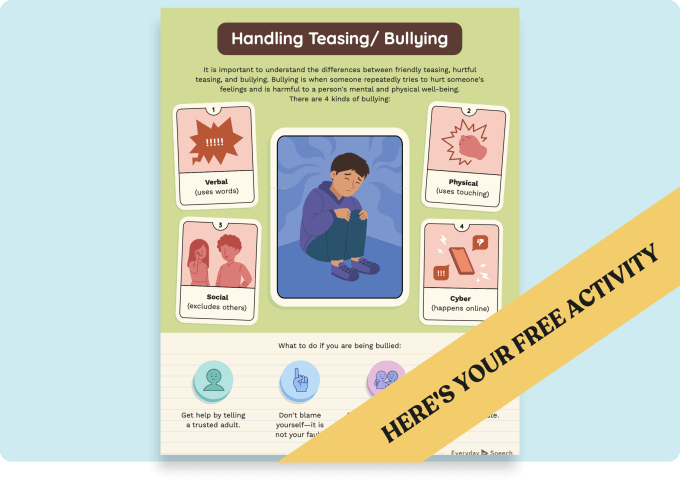Effective IEP Goals for Developing Listening Skills in Kindergarten Students
Get free social skills materials
No-prep lessons on self-regulation, emotional recognition, conversation skills, and more.
Sign up hereDownload 50+ Example IEP Goals
Customizable library of strengths-based goals
Introduction
In special education, it is essential to identify and address the skills necessary for students to succeed in their learning and social interactions. One key skill in this aspect is the ability to listen effectively. In this blog post, we will explore the significance of listening skills in kindergarten students and provide guidance on how to develop effective Individualized Education Program (IEP) goals to enhance these skills.
Understanding Listening Skills
Listening skills are crucial for students’ learning, social interactions, and overall wellbeing. They involve using one’s eyes, body, and verbal responses to show interest and attentiveness when engaging with others. Effective listening helps students better understand their peers and teachers, fostering positive relationships and reducing the likelihood of misunderstandings. It also promotes a supportive learning environment where students feel valued and heard.
The Role of Specialists
Various specialists can support the development of listening skills in students:
- Speech-Language Pathologists: They can help students improve their auditory processing and comprehension, enabling them to better understand spoken language and respond appropriately.
- Social Workers: They can provide guidance on social skills and strategies to enhance students’ ability to listen and communicate effectively in social situations.
- Psychologists: They can assess and address any underlying cognitive or emotional factors that may impact students’ listening skills.
- School Counselors: They can support students in developing positive relationships and coping strategies to improve their listening skills and overall social functioning.
IEP Goals for Listening Skills
Here are some examples of SMART IEP goals to improve kindergarten students’ listening skills:
Goal 1: Active Listening
By the end of the IEP period, the student will demonstrate active listening during class and peer interactions by maintaining eye contact, facing the speaker, and responding appropriately in 4 out of 5 opportunities.
Strategies and Activities: Practice active listening through role-playing exercises, use visual cues to remind students of listening expectations, and provide positive reinforcement for appropriate listening behavior.
Goal 2: Following Directions
By the end of the IEP period, the student will accurately follow 2-3 step directions given by the teacher or a peer in 4 out of 5 opportunities.
Strategies and Activities: Incorporate multi-sensory instructions, use visual aids to supplement verbal directions, and provide opportunities for students to practice following directions in various settings.
Implementing and Measuring Progress
To effectively implement and measure progress on these IEP goals, consider the following tips:
- Collaborate with specialists to ensure a comprehensive approach to support the student’s listening skills.
- Monitor progress through regular observations and data collection, such as checklists and anecdotal notes.
- Adjust strategies and goals as needed based on the student’s progress and changing needs.
- Involve students in goal-setting and self-assessment to promote self-awareness and motivation.
Conclusion
Developing effective listening skills is crucial for kindergarten students’ success in their learning and social interactions. By implementing well-designed IEP goals and collaborating with specialists, educators can help students improve these vital skills. We encourage you to apply these strategies and goals in your work with students and invite you to explore more resources at Everyday Speech Sample Materials.


